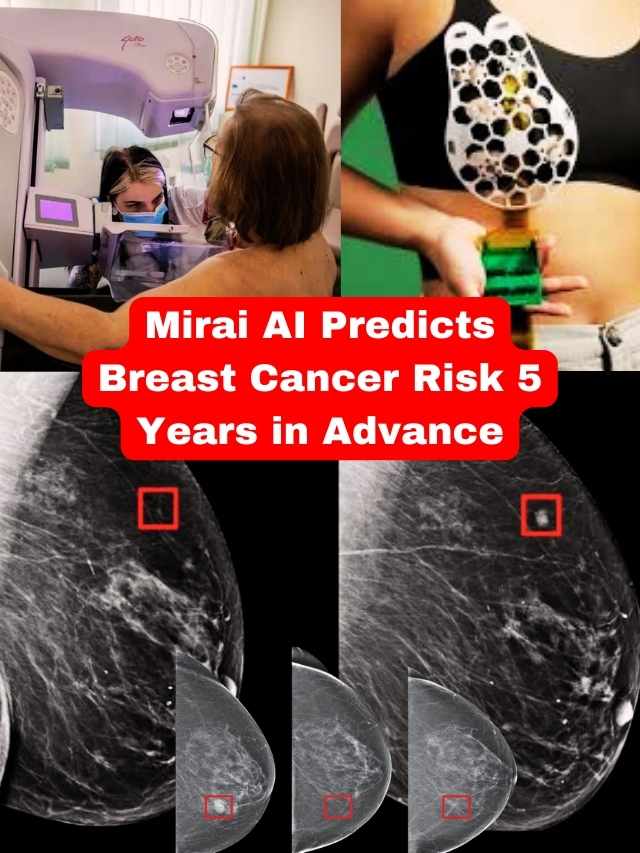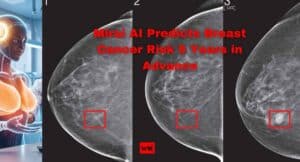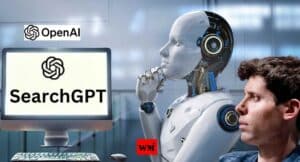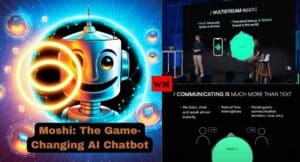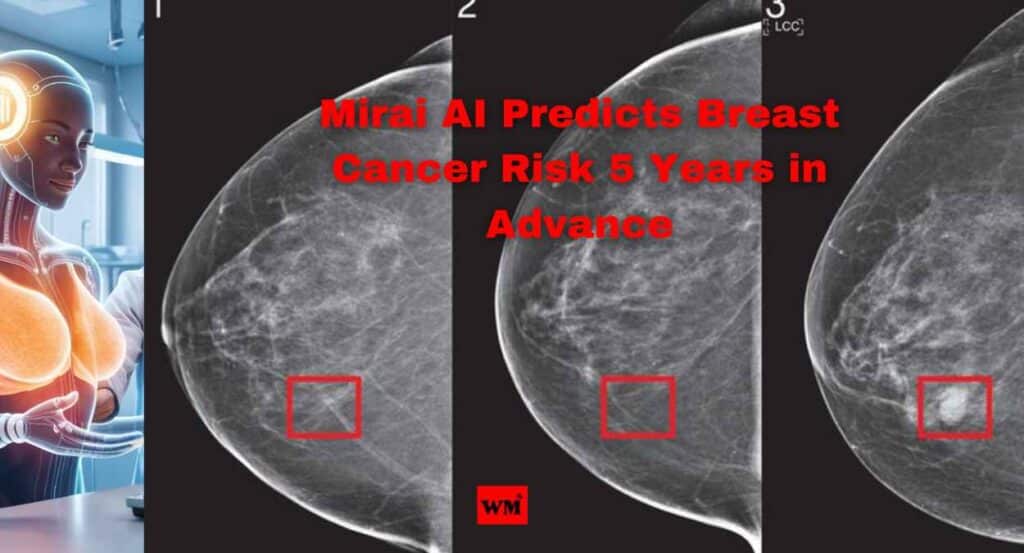
MIT’s Mirai : The AI Revolution in Breast Cancer Detection
In a world where breast cancer remains a formidable foe, a groundbreaking artificial intelligence (AI) model is offering hope by predicting cancer risk up to five years before symptoms appear.
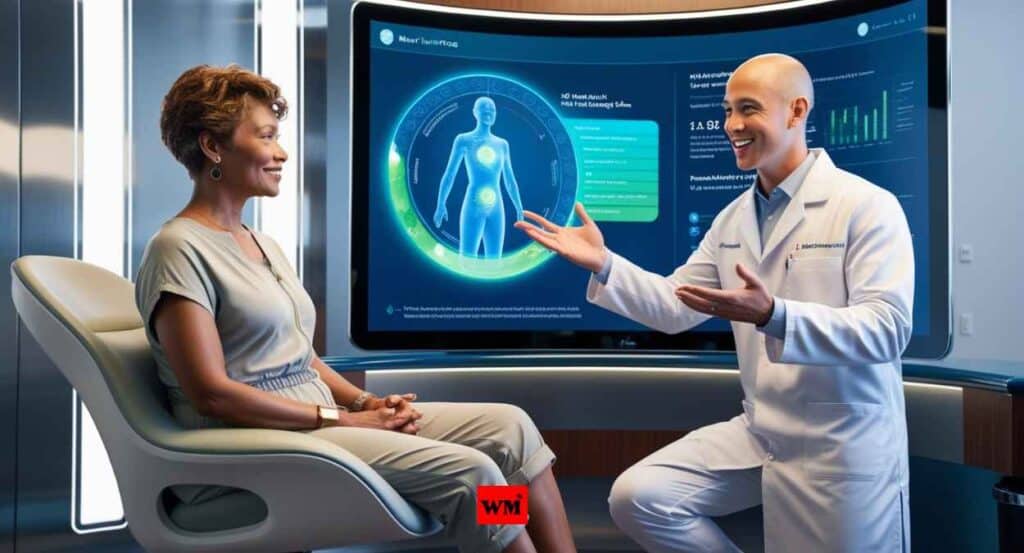
This revolutionary technology, known as Mirai, is turning heads in the medical community and beyond. Developed by brilliant minds at MIT’s Computer Science and Artificial Intelligence Laboratory (CSAIL) and the Jameel Clinic, Mirai represents a quantum leap in early cancer detection.
Imagine a future where doctors can spot breast cancer lurking in the shadows, long before it rears its ugly head. That’s the promise of Mirai, an AI system that’s not just smart, but fair too – working equally well for women of all backgrounds. As this tech makes waves, from hospital corridors to social media feeds, it’s clear we’re on the brink of a new era in healthcare. Mirai isn’t just changing the game; it’s rewriting the rules of cancer screening altogether.
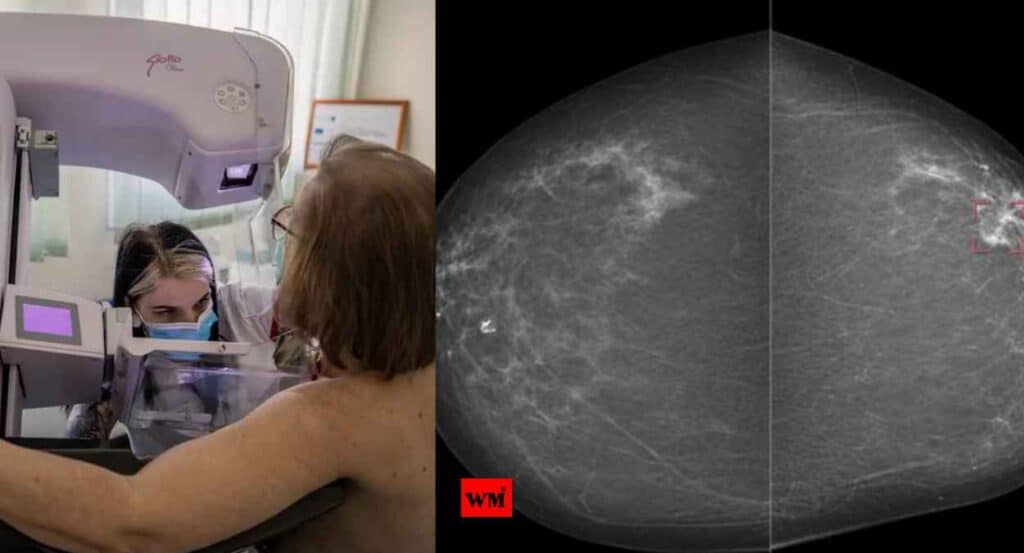
The Birth of Mirai: MIT’s AI Brainchild
Back in 2021, a team of whiz kids at MIT unleashed Mirai on the world. This deep learning system isn’t your average number-cruncher. It’s a mammogram maverick, peering into X-rays with superhuman precision to spot cancer risks that human eyes might miss.
Here’s the kicker: Mirai doesn’t just work well in a lab. It’s been put through its paces in hospitals across the globe, from the bustling halls of Massachusetts General Hospital to clinics in Sweden and Taiwan. And guess what? It passed with flying colors every single time.
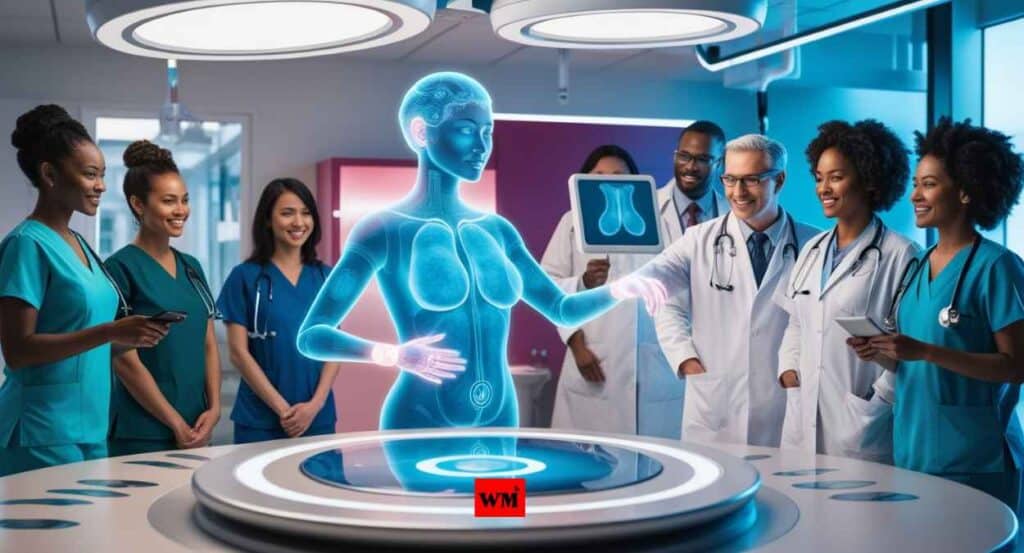
How Mirai Works Its Magic
So, how does this digital detective do its job? Let’s break it down:
- Image Aggregator: First, Mirai gathers all the mammogram images and pieces them together like a high-tech puzzle.
- Data Crunching: It then dives deep into the image data, looking for telltale signs of future trouble.
- Risk Factor Prediction: If needed, Mirai can even predict other risk factors just by looking at the mammogram.
- Future Forecasting: Finally, it crunches all this info to predict your cancer risk for each of the next five years.
It’s like having a crystal ball, but one backed by hard science and mountains of data.
Mirai vs. Traditional Methods: David Takes on Goliath
When it comes to predicting breast cancer, Mirai isn’t just keeping up with the old guard – it’s leaving them in the dust. Take the Tyrer-Cuzick model, a longtime standby in cancer risk assessment. Mirai doesn’t just beat it; it identifies nearly twice as many future cancer cases.
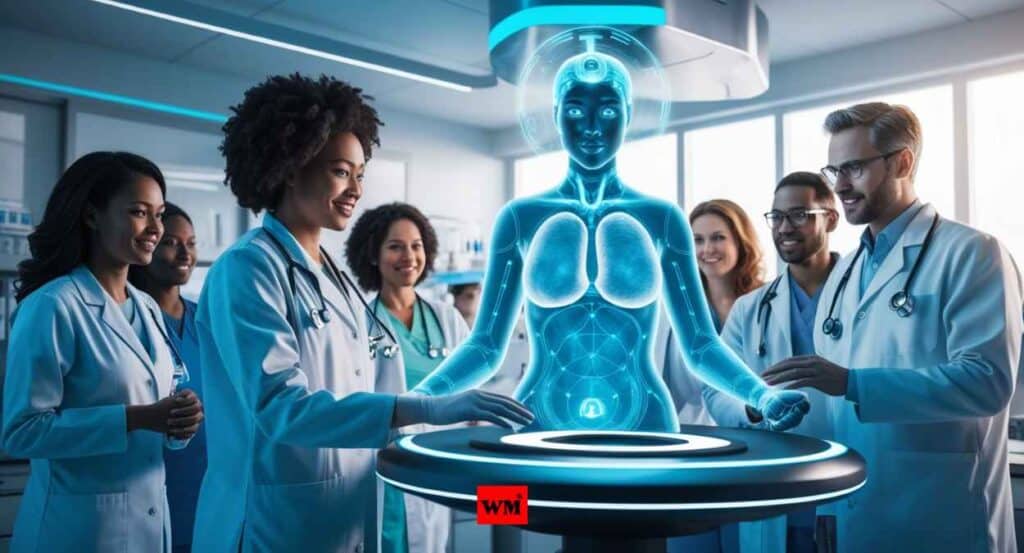
But Mirai’s real superpower? It works for everyone. Black women, who sadly face a 43% higher death rate from breast cancer, get the same accurate predictions as anyone else. That’s huge in a world where healthcare tech often falls short for minorities.
Mirai’s Secret Sauce: Consistency and Adaptability
What sets Mirai apart is its ability to roll with the punches. Different hospitals, different machines? No problem. Mirai keeps its cool and delivers consistent results across:
- Various races and ethnicities
- All age groups
- Different breast density categories
- Multiple cancer subtypes
It’s like having a Swiss Army knife for breast cancer detection – versatile, reliable, and always ready to go.
The Global Impact: Mirai Goes Worldwide
Mirai isn’t content staying in one place. It’s gone global, with trials and partnerships popping up all over the map:
- UMass Chan Medical School in Worcester, Massachusetts is putting Mirai through its paces in clinical trials.
- The Jameel Clinic AI Hospital Network is spreading Mirai’s reach to partner hospitals worldwide.
- Even Saudi Arabia’s getting in on the action, with the King Faisal Specialist Hospital and Research Centre in Riyadh teaming up with MIT’s Jameel Clinic.
This worldwide expansion isn’t just about bragging rights. It’s about making sure Mirai works for everyone, everywhere.
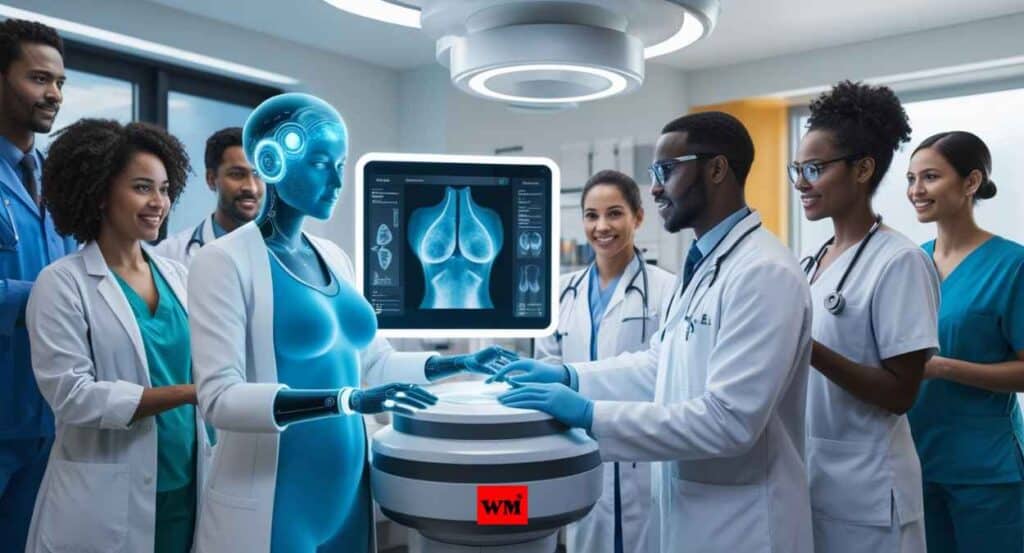
Beyond Breast Cancer: AI’s Growing Role in Healthcare
While Mirai’s making waves in breast cancer detection, AI’s tentacles are spreading throughout the medical world:
- Drug Development: AI’s speeding up the process of creating new medicines.
- Treatment Planning: Doctors are using AI to craft personalized treatment plans.
- Diagnosis Speed: AI is helping pathologists spot cancer faster than ever before.
The potential is huge, but challenges remain. We’re still ironing out the kinks, making sure these AI helpers are accurate, fair, and trustworthy.
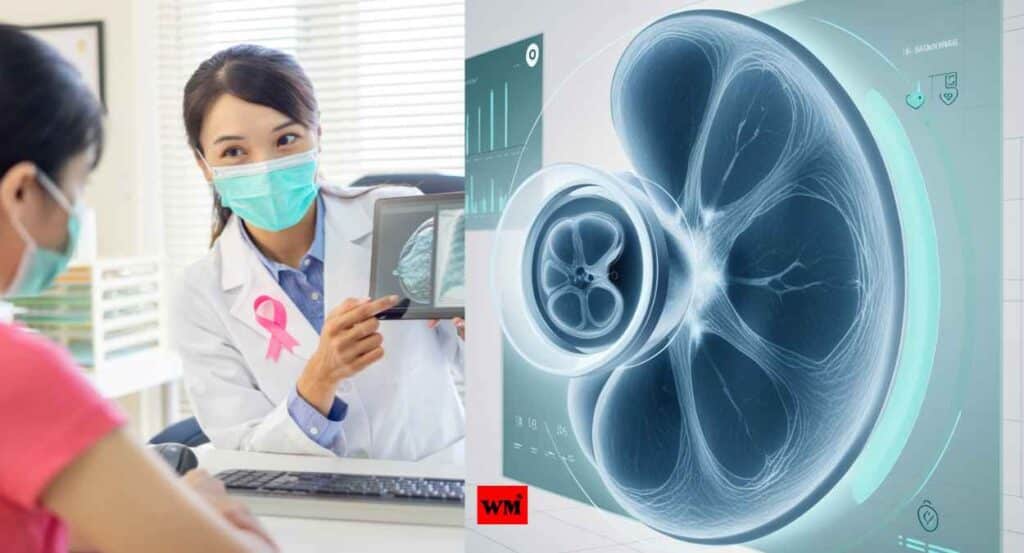
The Future is Now: AI in Action
Mirai isn’t some far-off dream. It’s already hard at work in hospitals like Massachusetts General. And it’s not alone:
- Duke University researchers have cooked up their own AI model for predicting 5-year breast cancer risk.
- Other AI algorithms are outperforming standard clinical models in predicting cancer risk.
As Vineet Nakra, a radiation oncologist, puts it: AI is becoming a “critical asset” for doctors, ultimately saving lives.
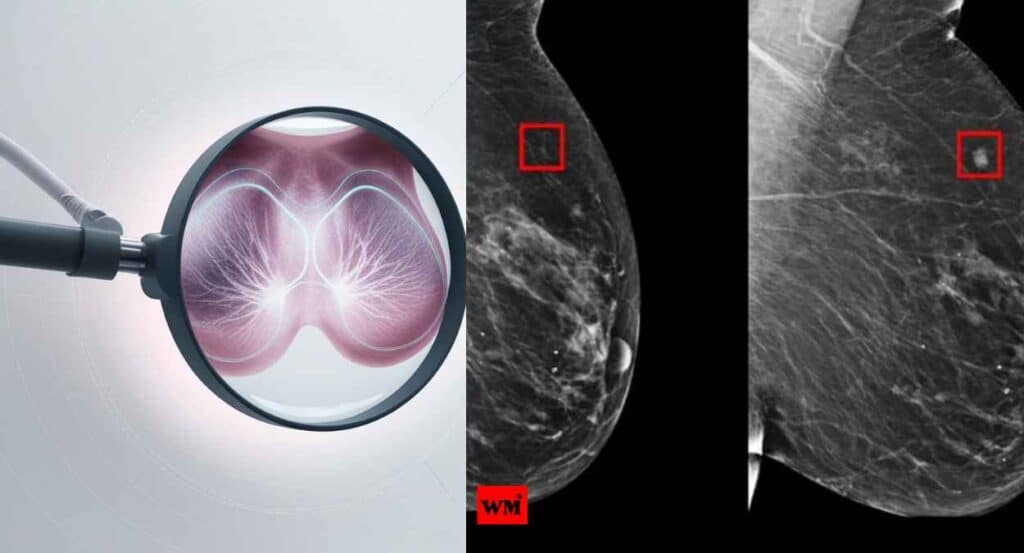
Beyond Medicine: Mirai’s Broader Impact
The Mirai team isn’t stopping at healthcare. They’re taking their AI smarts to other industries too:
- Marketing: AI-powered tools to boost your business reach.
- Business Development: Smart systems to help companies grow.
- Work Reform: Using AI to make our jobs easier and more efficient.
They’ve even created cool tools like AICO (an AI copywriter) and SHAREST (which predicts TV ratings). It’s all about using AI to solve real-world problems and make life better for everyone.
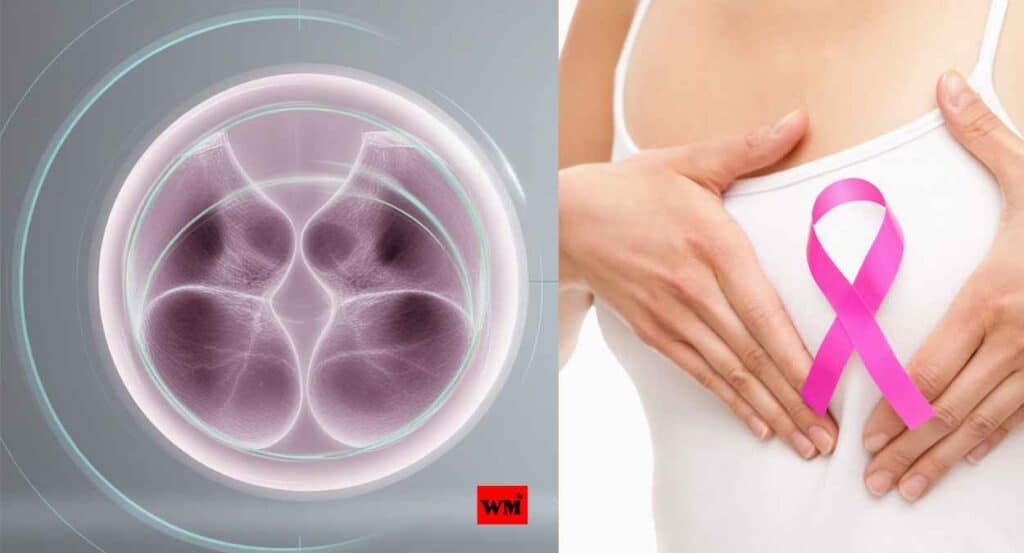
The Road Ahead: Challenges and Opportunities
As exciting as Mirai and other AI healthcare tools are, we’re not quite in the promised land yet. There are still hurdles to clear:
- Ensuring Fairness: We need to keep working to make sure these tools work for everyone, regardless of race, gender, or background.
- Transparency: Making sure we understand how AI makes its decisions is crucial for trust.
- Integration: Getting these new tools to play nice with existing healthcare systems is a big task.
But the potential rewards are huge. Imagine a world where cancer is caught early, treatments are tailored to each person, and healthcare is more accessible and effective for everyone.
Frequently Asked Questions (FAQs)
Q: How accurate is Mirai in predicting breast cancer?
A: Mirai has shown remarkable accuracy, outperforming traditional models and identifying nearly twice as many future cancer diagnoses in some studies.
Q: Does Mirai work equally well for all races?
A: Yes, one of Mirai’s strengths is its consistent performance across different races, age groups, and breast density categories.
Q: How far in advance can Mirai predict breast cancer risk?
A: Mirai can predict breast cancer risk up to five years in advance.
Q: Is Mirai already being used in hospitals?
A: Yes, Mirai is currently installed at Massachusetts General Hospital and is undergoing trials and deployments in other hospitals worldwide.
Q: Can Mirai replace human doctors?
A: No, Mirai is designed to assist doctors, not replace them. It’s a tool to help healthcare professionals make more informed decisions.
Q: How does Mirai compare to traditional risk assessment methods?
A: Studies have shown that Mirai outperforms traditional methods like the Tyrer-Cuzick model in predicting breast cancer risk.
Q: What other areas is AI impacting in healthcare besides cancer detection?
A: AI is also being used in drug development, treatment planning, and speeding up diagnosis in various medical fields.
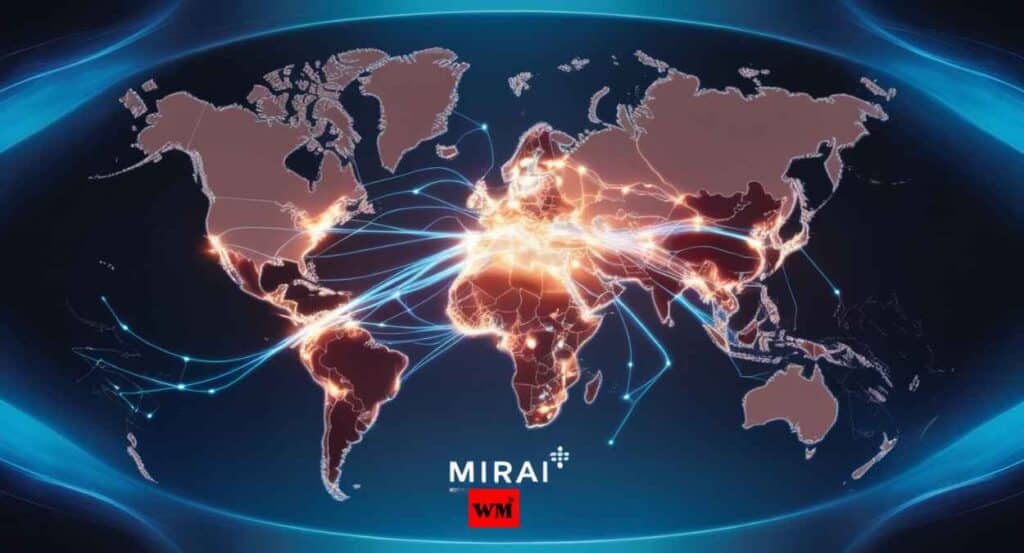
Conclusion: A Bright Future with AI in Healthcare
As we stand on the brink of this AI revolution in healthcare, it’s clear that tools like Mirai are just the beginning. We’re entering an era where early detection, personalized medicine, and AI-assisted healthcare aren’t just buzzwords, but realities that are saving lives.
From predicting breast cancer years in advance to revolutionizing drug development and treatment planning, AI is reshaping the medical landscape. And while challenges remain, the potential benefits are too great to ignore.
As we move forward, it’s crucial that we continue to develop these technologies responsibly, ensuring they work for everyone and earn the trust of both healthcare providers and patients. The future of healthcare is here, and it’s powered by AI. Are you ready for it?
Watch the web story on Mirai AI
Disclaimer:
The information provided on Wini Media is for educational purposes only and should not be considered medical advice. Always consult with healthcare professionals for medical decisions.
Also Read
Unlock SearchGPT’s Power: Revolutionize Your Research Today! How to Use SearchGPT ?
Ola’s Game-Changing Move: Ditching Google Maps for In-House Ola Maps
Meet Prafulla Dhariwal: The Pune Prodigy Behind OpenAI’s Revolutionary GPT-4o
The Alarming Rise of Neurological Disorders: A Global Health Crisis
Google’s Urgent Warning: Is Your Google Drive Data Really Safe?
Meet Devin, The AI Software Engineer Shaping the Future of Coding
Deepfakes: The New Face of Online Misinformation and How to Tackle It
